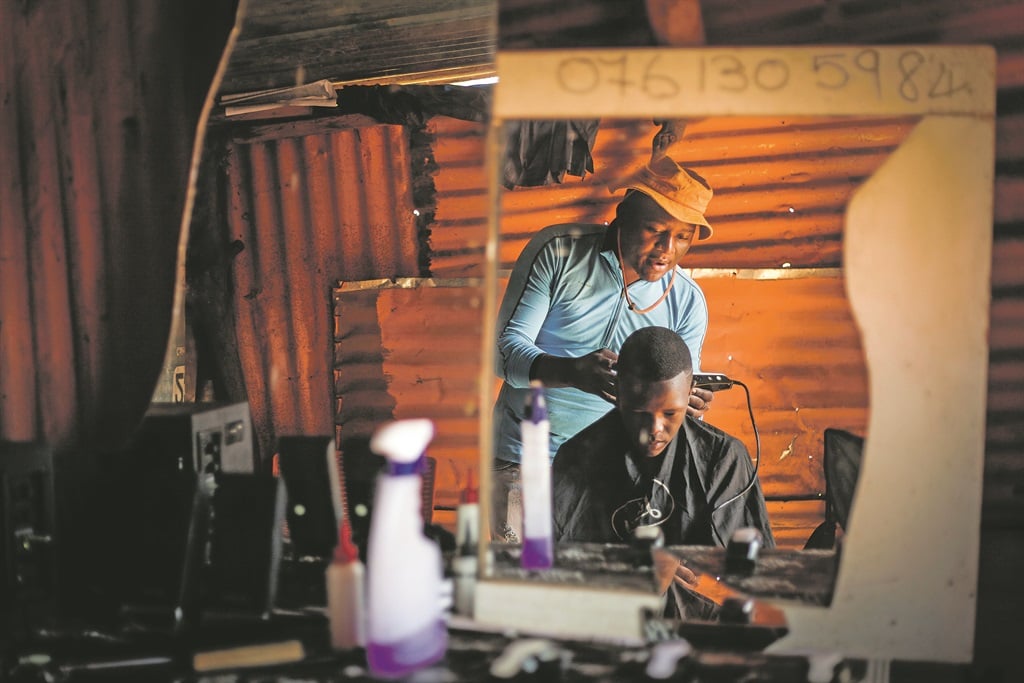
It’s a hairstyle popular with many South Africans – easy on the pocket and definitely on maintenance. But the chiskop could cost you your health.
There is significant contamination of hair clippers with blood and blood-borne viruses – particularly hepatitis B – according to a study by researchers at the University of Cape Town, published in this month’s edition of the SA Medical Journal.
In a recent separate study, bleeding caused by the popular clean-shave haircut was reported to be prevalent – a worrisome finding in a country with 6.9 million people infected with HIV.
So significant is the contamination, that the latest study found that 42% of clippers collected from 50 barber shops from townships in Cape Town tested positive for blood.
And while the presence of the HI virus was fortunately not detected in these tests, at least 8% of the samples came back with positive markers for hepatitis B.
Hepaptitis B is a serious, but treatable, liver disease. While it mostly clears up on its own, it can lead to liver failure if it becomes chronic.
The researchers invited hairdressers from the Langa, Gugulethu and Bonteheuwel townships in Cape Town to participate, collecting one clipper from each shop.
In areas with a predominantly black African population, namely Langa and Gugulethu, the chiskop haircut was the style most requested, whereas in Bonteheuwel, clients mostly asked for brush cuts, blade-fades and German cuts.
While hairstyle trends for men have changed over the years, from the “big Afros” of the 1960s and 1970s, to the blade-fade and German haircut that became popular in the 1990s, the researchers contend that the current clean shave or chiskop became fashionable at the turn of the century and is worn by at least 70% of black men in Cape Town townships.
“All the barbers cleaned the clippers after each client, but the cleaning agents varied. Most barbers (82%) used disinfectant with methylated spirits after using a brush to remove hair, and 8% used an open flame,” researchers noted.
Even with the use of these methods to disinfect their equipment, their efficacy couldn’t fully be determined, as ethyl alcohol and methyl alcohol aren’t agents that destroy viruses, and there is no data on the efficacy of an open flame or guidelines about adequate exposure time.
“The chiskop is worn by the majority of black men in South Africa and the African diaspora. Besides being a trend, this haircut is part of certain cultural rituals in various African and Indian tribes.
“The haircut is achieved either by using a razor blade or by pressing the metal shears of an electric clipper directly on to the scalp without using the manufacturer-supplied plastic stages (combs),” they explained.
Another study found shaved pimples at the back of the scalp of customers whose hair had been cut with razors and on those whose hair was cut with clippers.
Invisible bleeding was recently detected in scalp swabs after a dermatologist examined professional clean-shave haircuts.
A 2012 study in Ethiopia reported that sharing shaving equipment in barber shops was common practice, and an accidental scratch by sharp equipment could allow HIV and other blood-borne pathogens to enter the body.
The researchers concluded: “This study confirms that there is significant contamination of barber hair clippers with blood and blood-borne viruses. Hepatitis B was detected with enough DNA copies to pose a risk of transmitting infection.
“Although HIV was not detected in this small study, the risk of transmission should be quantified. Further studies to investigate barber clipper sterilisation practices and whether the clean-shave hairstyle is an independent risk factor for HIV, hepatitis B and hepatitis C virus infections are warranted.”
In the meantime, the researchers advocate public education to encourage people to have their own hair clippers – as with toothbrushes.
Will this study encourage you to buy your own clippers or ditch the chiskop entirely?
SMS us on 35697 using the keyword CHISKOP and tell us what you think. Please include your name and province. SMSes cost R1.50




 Publications
Publications
 Partners
Partners








